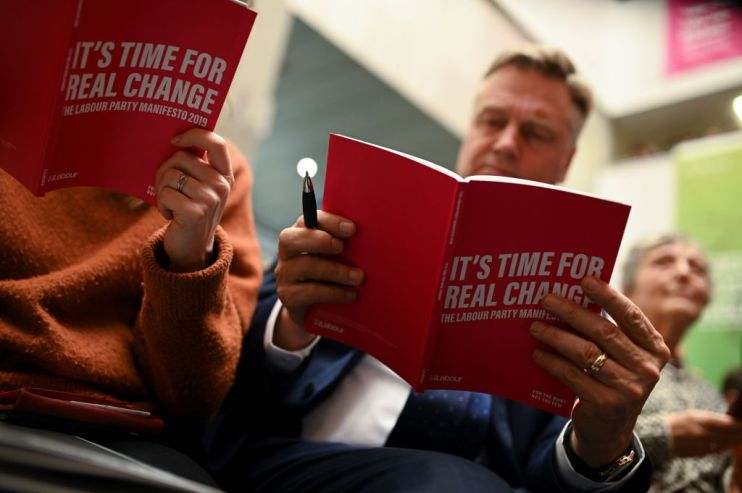Here’s how much you need to earn to be considered rich

A fiery debate was sparked last night about what makes a person “rich” after a man on BBC Question Time wrongly claimed he was not even in the top 50 per cent of earners – despite bringing home £80,000 a year.
The man laid into Labour candidate Richard Burgeon, who was on the show to defend Labour’s new manifesto. He attacked the party’s claim that it will only raise taxes on the richest five per cent in the country.
Read more: General Election 2019: Shadow chancellor John McDonnell defends Labour’s tax plans
“I am one of them people that he will tax more and I am nowhere near in the top five per cent,” the audience member said angrily – and incorrectly – to Burgeon. “I’m not even in the top 50 per cent,” he added later.
The man said he earned over £80,000 a year when asked by host Fiona Bruce, but again claimed: “I’m not in the top five per cent.”
Burgeon called the man “mistaken,” a response borne out in the latest data from HM Revenue & Customs from 2016-17. It shows that anyone earning above £75,300 is in the top five per cent of taxpayers.
In 2017, polling firm Yougov looked into what kind of salary Britons think makes a person “rich”.
The results showed that people in the UK think the top 10 per cent of earners – those bagging on average £60,500 a year – are wealthy. Almost 70 per cent of people called this group “rich”.
By this standard, Brits overwhelmingly think Question Time’s £80k earner is rich.
The UK population thought anyone one rung down the ladder was not poor, but not rich either. Over a third said those earning on average £39,800 – the 10 per cent of earners below the top 10 per cent – were “neither rich nor poor”.
Just over a third of Brits thought a person who earned this much was “rich” while practically none called them poor.
Read more: Labour manifesto: Capital gains hike to fund spending spree
Those polled by YouGov only started to mainly think a person was “poor” once they got down to those earning on average £15,300, which put them in the lowest 40 per cent of earners.
What income bracket do you fall into?
| Salary before tax | Income bracket in 2017 |
| £166,000 or more | Top 1 per cent |
| £75,300 or more | Top 5 per cent |
| £53,600 or more | Top 10 per cent |
| £40,000 or more | Top 20 per cent |
| £32,600 or more | Top 30 per cent |
| £27,500 or more | Top 40 per cent |
| £23,600 or more | Top 50 per cent |
| £20,500 or more | Bottom 50 per cent |
| £17,800 or more | Bottom 40 per cent |
| £15,500 or more | Bottom 30 per cent |
| £13,300 or more | Bottom 20 per cent |
| Below £13,300 | Bottom 10 per cent |
Source: HM Revenue & Customs. These figures are from 2016-17 and so are more recent than the figures YouGov used.
The argument over tax was not only on Question Time last night. Labour’s plans to tax the richest five per cent to fund a spending increase of around £80bn was criticised by the Institute for Fiscal Studies (IFS) think tank.
It said it was “not credible” to argue that only the very richest would shoulder the burden.